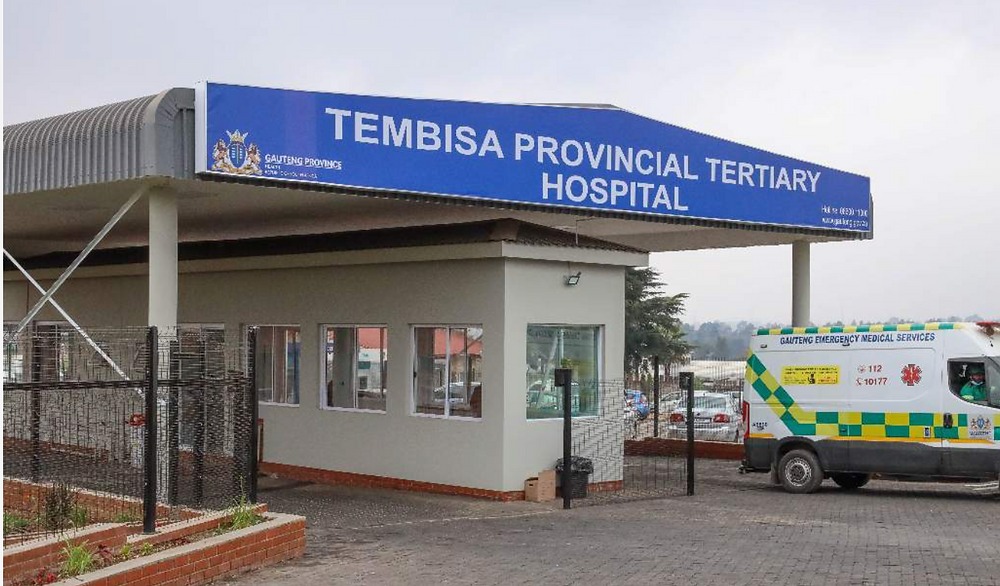News
Tembisa Hospital Scandal: Patients Go Hungry as R2 Billion Corruption Unravels

When Corruption Reaches the Ward
At Tembisa Hospital, patients are going without food, medicine, and even toilet paper. What should be a place of healing has become a symbol of South Africa’s deepening crisis in public healthcare. According to the Special Investigating Unit (SIU), the facility has been at the centre of a R2 billion looting scheme that siphoned away funds meant to save lives.
Whistleblowers and staff say the aftermath of the corruption is being felt in real time. Wards are running short on basic supplies, and food deliveries often arrive from other hospitals that are trying to help. “We are borrowing food and medicine from neighbouring hospitals. It is that bad,” one staff member said anonymously, fearing repercussions for speaking out.
How the Money Was Stolen
The SIU report revealed that a network of hospital officials and service providers created an elaborate tender-fraud system between 2018 and 2024. Contracts were deliberately kept below R500 000, the threshold that would have required a formal tender process. By using a simpler three-quote system, syndicates could easily manipulate prices and fake supplier rotation.
The investigation found that suppliers were often not registered on the central supplier database, allowing fake companies to win contracts for medical supplies, catering, and maintenance. One syndicate, allegedly led by businessman Hangwani Maumela, used 41 front companies to move money through fraudulent purchase orders and inflated invoices.
Earlier this month, the SIU and the National Prosecuting Authority’s Asset Forfeiture Unit seized assets worth R325 million, including luxury homes, vehicles, and a boat linked to the scheme.
A Human Cost That Keeps Growing
The fallout has hit the hospital’s wards hardest. Union officials from Cosatu, who visited Tembisa Hospital on 7 October for the International Day for Decent Work, described scenes that no major facility should face. “There was no toilet paper in some bathrooms, and staff are trying to care for patients without proper equipment,” spokesperson Zanele Sabela said.
Doctors and nurses continue to show up, often improvising just to keep patients comfortable. But shortages of medication and basic supplies are making their jobs nearly impossible.
The crisis is particularly painful given Tembisa’s history. In 2020, Shonisani Lethole died of starvation after going more than 100 hours without food while hospitalised with Covid-19 symptoms. The Health Ombud’s 2021 report called his death preventable, and the hospital’s CEO at the time, Dr Lekopane Mogaladi, was suspended. Many now see today’s shortages as part of the same pattern of neglect and mismanagement.
Public Outrage and Calls for Accountability
Civil organisations and opposition parties have demanded action. The Organisation Undoing Tax Abuse (OUTA) said the crisis shows what happens when corruption and political interference become normalised. CEO Wayne Duvenage called on Premier Panyaza Lesufi to replace failing leadership with skilled, independent hospital managers who will “restore governance and service delivery.”
DA health spokesperson Jack Bloom added that the Gauteng Health Department must urgently fix broken procurement systems, fill vacant posts, and repair fire-damaged wards still out of operation.
The SIU has already filed 116 disciplinary referrals involving 13 officials, with at least 15 current and former staff members identified as being part of the fraudulent network. Investigators expect that number to rise as evidence unfolds.
A Test of South Africa’s Moral Pulse
For patients and families, the statistics mean little compared with the daily struggle of finding a working bed, a meal, or a dose of medicine. The Tembisa scandal is not just about missing money. It is about lives interrupted and trust betrayed.
What happens next will determine whether South Africa’s health system can recover from a wound this deep. Accountability is being promised, but inside Tembisa’s walls, it is compassion and courage keeping the system alive.
Follow Joburg ETC on Facebook, Twitter, TikT
For more News in Johannesburg, visit joburgetc.com
Source: IOL
Featured Image: Public Interest SA



























